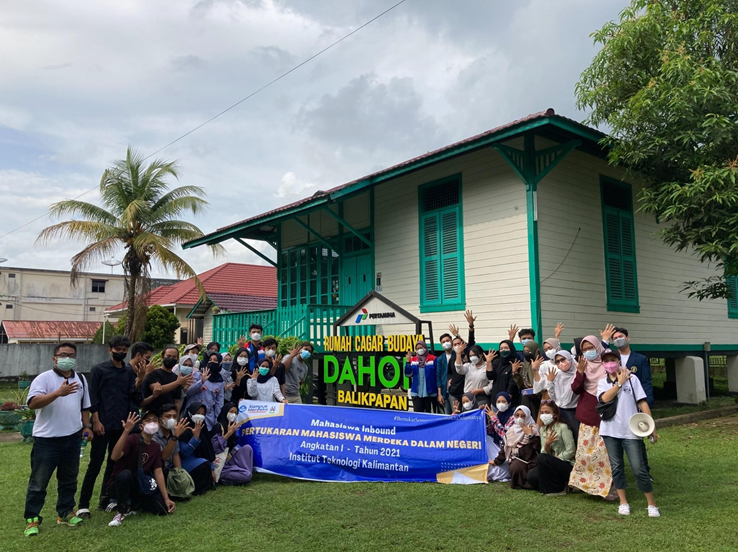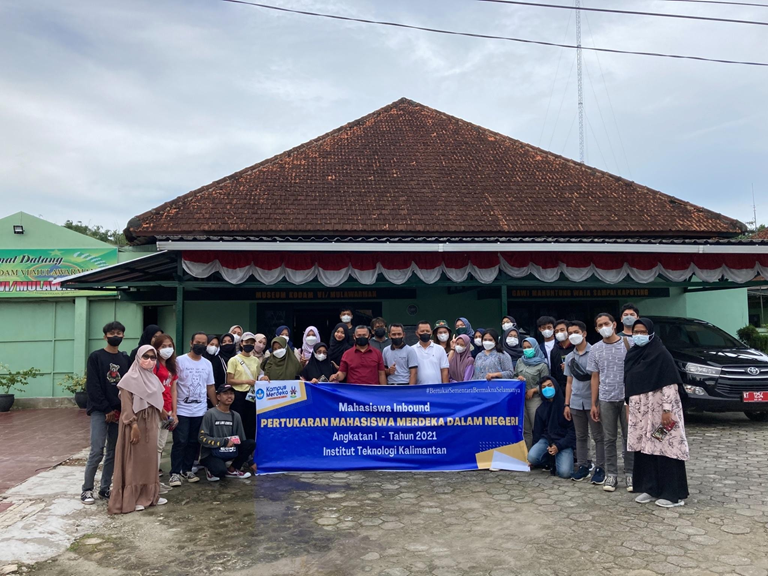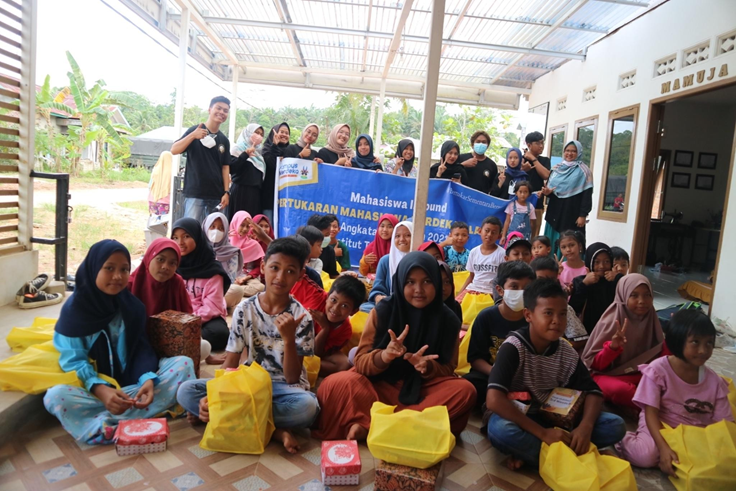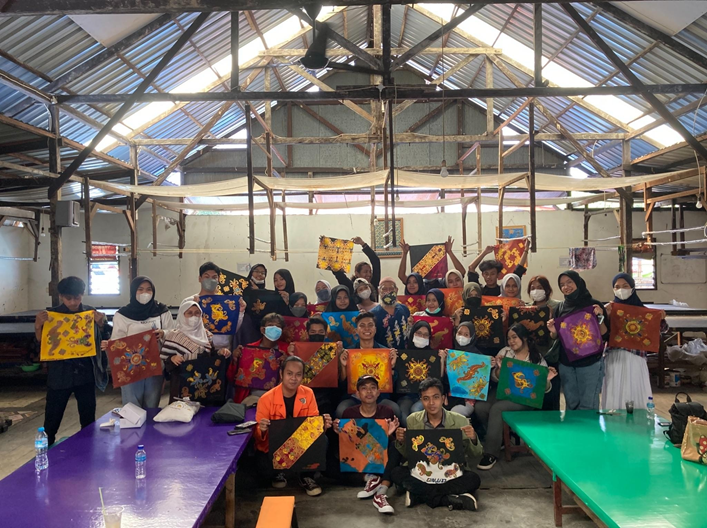Kampus Merdeka is part of the Merdeka Belajar policy by the Ministry of Education, Culture, Research, and Technology of the Republic of Indonesia. It provides students with the opportunity to hone their skills according to their talents and interests by directly immersing themselves in the professional world as preparation for their future careers. One of the programs offered by Kampus Merdeka is the independent student exchange program. This program allows students to explore and learn about the cultural diversity of the archipelago, make friends with students from various regions, and have the opportunity to study at other universities in Indonesia. Domestic student exchange is a learning activity conducted outside the study program at a host university within the country, with a credit load of 20 credits.
One of the students from Universitas Airlangga who participated in this program is Syafitri Rihandini, a 2019 Mathematics major. Syafitri joined the Domestic Independent Student Exchange (PMM-DN) program from August 2021 to January 2022 at the Kalimantan Institute of Technology (ITK). From August to November 2021, Syafitri participated in the PMM program online through Zoom meetings, and from November 2021 to January 2022, she attended the program in person at the ITK campus. Syafitri was not alone in this program; she was one of 20,000 participants across ITK and other universities under the Ministry of Education, Culture, Research, and Technology.


Syafitri underwent several stages in this program. The first stage was course programming, which could be done in three ways: 20 credits entirely at the host university, a minimum of 10 credits at the host university with the remaining credits at partner universities, or a minimum of 10 credits at the host university with the remaining credits taken at the home and partner universities. The second stage was the implementation of lectures. The first three months of lectures were conducted remotely or online, followed by in-person lectures for the final two months. The learning system at the host university was conducted in person if possible, while the home and partner universities conducted fully online learning using the SPADA-DIKTI platform.
The next stage was the implementation of the Nusantara module activities, which included four types of activities: diversity, inspiration, reflection, and social contribution. Understanding diversity involved visiting various local tourist attractions, historical sites, places of worship, traditional institutions, and social community institutions. Inspirational activities included meetings with community leaders, accomplished individuals, government officials, religious leaders, legendary athletes or artists, successful entrepreneurs, and other inspirational figures. Reflection activities were carried out in the form of discussions, scientific writings, video documentation, or talk shows about the reflection of diversity and inspirational activities. Social contribution activities were conducted through community service activities in the area of the host university. Weekly activity reports and a final report documenting the learning process at the host university were required, including documents of learning outcomes.


Syafitri found many interesting aspects during her participation in the Domestic Independent Student Exchange program, such as being placed at the Kalimantan Institute of Technology in Balikpapan, East Kalimantan. Although a newly established institution, it had comprehensive facilities to support academic activities. Syafitri also enjoyed meeting students from all over Indonesia, many of whom came from universities in Java. Additionally, she had the chance to participate in activities about diversity by visiting various local attractions, historical sites, places of worship, traditional institutions, and social community institutions.
Besides the interesting experiences, Syafitri gained several benefits from the program. These included developing a love for Indonesia’s regional cultural diversity, gaining learning experiences at other universities, expanding friendships across regions, ethnicities, cultures, and religions throughout Indonesia, getting to know historical places, especially in East Kalimantan, and understanding the learning systems at other campuses. Syafitri hopes that this program will maintain relationships among alumni of the first batch of domestic student exchange. For the next PMM-DN batch, she hopes the system will be even better.
Syafitri’s participation in the Domestic Independent Student Exchange program is part of the effort to achieve one of the SDGs, namely ensuring inclusive and equitable quality education and promoting lifelong learning opportunities for all.
